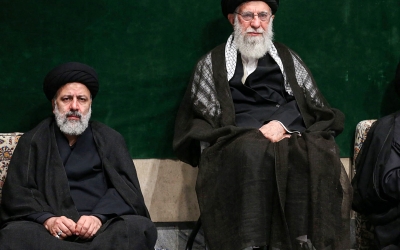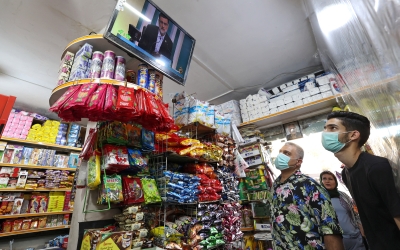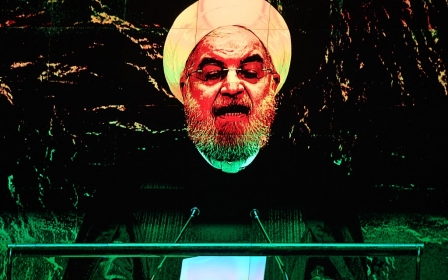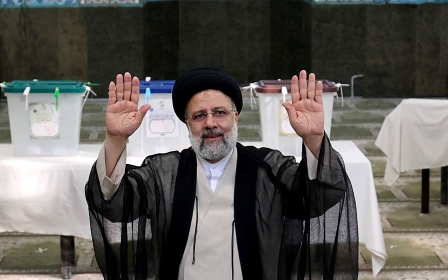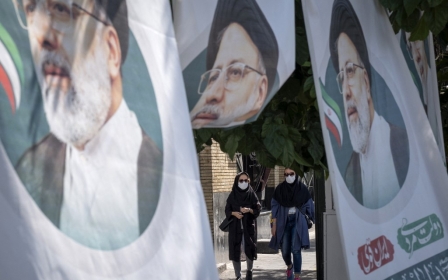Iranian press review: Establishment blamed for presidential election boycott
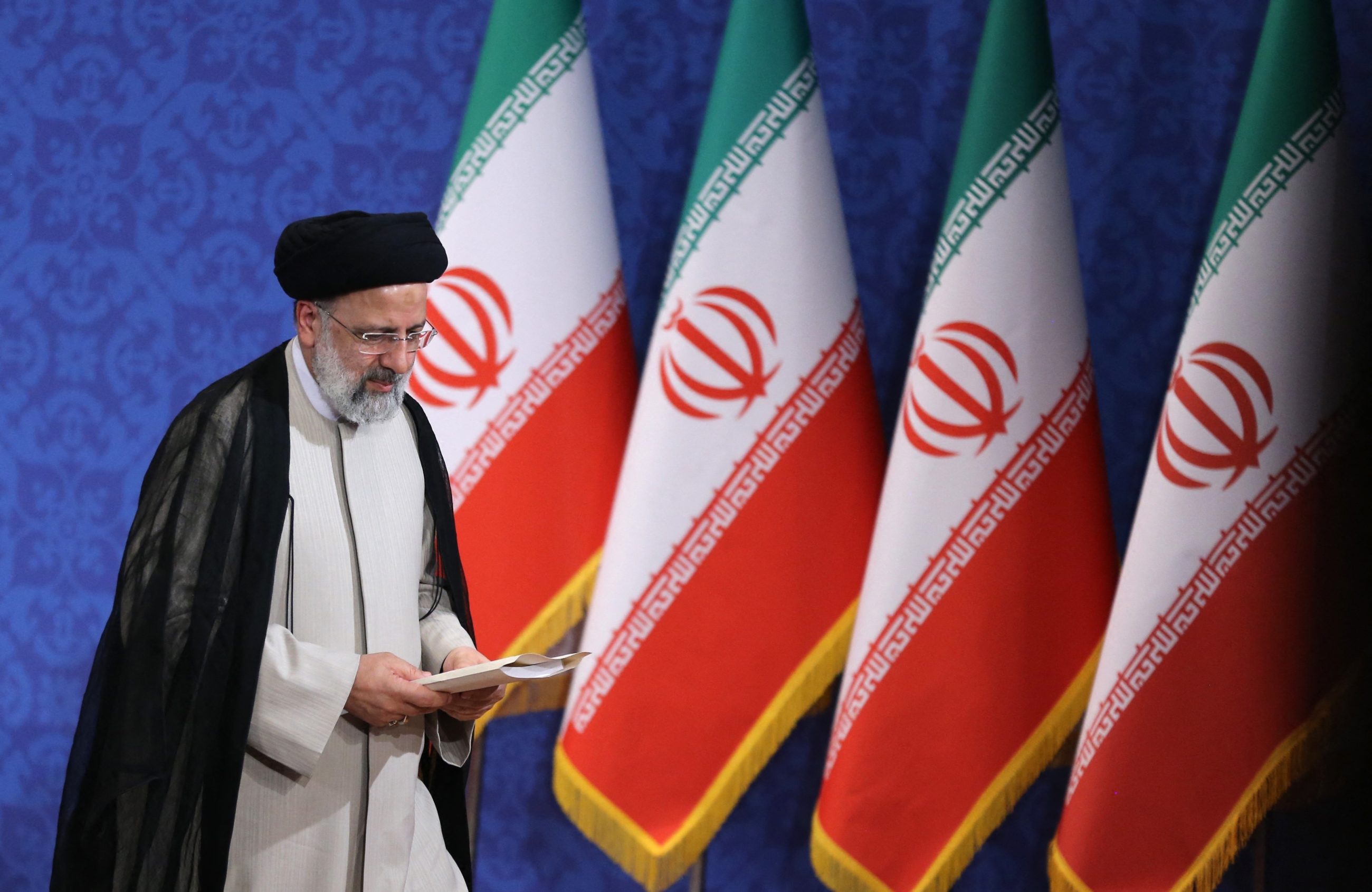
Reformists blame establishment for low voter turnout
Reformist politicians have blamed Iran's political leadership and the Guardian Council for the record low voter turnout recorded in the 18 June presidential election.
In a Twitter post, Ali Shakourirad, general secretary of the reformist Union of Islamic Iran People Party, said the Islamic Republic was the big loser from the low turnout.
"Maybe President-elect Raisi would still have been be the real winner of the elections if the 12 arrogant, illogical and unaccountable members of the Guardian Council, had not illegally intervened in the election, turning it into a one-sided competition," Shakourirad said.
Mostafa Tajzadeh, a prominent reformist figure and a former political prisoner barred by the Guardian Council from running as a presidential candidate, also accused the establishment of engineering the election.
"In the 2013 and 2017 elections, 73 percent of eligible voters went to the polls, but 48 percent voted in this election,” Tajzadeh wrote on Twitter.
“Those who have engineered the election are responsible for this 25 percent (15 million people) drop in the number of voters."
According to the interior ministry, over 28.9 million Iranians, 48.8 percent of the population eligible to vote, went to the polls.
Official data shows that the turnout was much lower in big cities such as the capital Tehran, where only 26 percent of those eligible voted. Conservatives have more supporters in small towns and villages across the country.
Invalid votes hit record 4.5 million
Low voter turnout and disqualification of heavyweight candidates were not the only surprises in Iran's 18 June election, as Iranians this year also cast the highest number of invalid votes in the country’s history of presidential elections.
According to numbers announced by the interior ministry, over 4.5 million Iranians (14 percent of eligible voters) cast invalid votes, an act widely recognised as a protest vote in Iran.
Participating in elections is an essential factor in passing the religious and ideological vetting process for Iranians who seek well-paid positions at governmental offices, military organisations, and the country's Islamic Revolutionary Guard Corps (IRGC).
For this reason, millions of Iranians cast their ballots either without writing any names or with the names of famous singers and actors.
This year's invalid votes increased to 12 percent from last year’s 2 percent. The numbers indicate that invalid votes were higher than the votes that each of president-elect Ebrahim Raisi’s three rivals secured.
According to experts, the sharp rise in the number of invalid votes shows that the number of people who have decided to boycott this year's election was higher than what was reported by officials.
Abbas Abdi, a prominent political analyst, said that if the percentage of invalid votes was subtracted from the total number of people who had voted, the total turnout would stand at 43 percent, over five percent less than the official number.
Conservatives win Tehran
Conservatives have won control over Tehran’s city council, which was the last institution controlled by reformists, in the city and village Islamic councils elections that took place on 18 June, the Arman daily reported.
Mehdi Chamran, an ultra-conservative politician, and Parviz Sarvary, an Islamic Revolutionary Guard Corps (IRGC) member, won the highest number of votes, respectively, in the elections for the council’s 21 members.
This year’s surprise was Narjes Soleimani, daughter of the assassinated IRGC commander Qassem Soleimani, who secured the third-highest number of votes. Narjes Soleimani, who has no political background, has increased her public presence since US forces killed her father in Iraq in January 2020.
City councils are responsible for public affairs, including supervising the activities of municipalities, and local planning. However, since its establishment in 1999, Tehran's city council has been a battleground for political factions due to its role in electing the capital’s mayor.
Former president Mahmoud Ahmadinejad and current parliament speaker Mohammad Bagher Qalibaf, are two prominent conservative politicians who were elected as Tehran's mayor before rising to the top of the political ladder.
Iranians face second Covid-19 vaccine shortage
Iran's health ministry has paused its national Covid-19 vaccination drive because of a new vaccine shortage in the country, which has also halted the delivery of second doses to those who have already received the first.
Local media reported that the vaccination of 65-70 year olds has been halted in the capital Tehran. At the same time, in several provinces, elderly people who went to health centres to receive their second dose did not get them.
Iran, the worst-hit country by the pandemic in the Middle East, had started its Covid-19 vaccination drive much later than most countries in the region due to US sanctions and a domestic economic crisis.
In April and May, following a partial release of Tehran’s frozen funds in Iraq and South Korea, Iran sped up the vaccination programme and delivered the first dose to people over 70, healthcare workers and high-risk groups.
As the vaccine shortage hit the country again in mid-June, health ministry spokesman Kianoush Jahanpour publicly apologised to those who could not receive the second dose.
Meanwhile, officials in Tehran blamed Beijing and Moscow for the shortage, saying that these two vaccine producers had not supplied Iran with the doses the country had paid for.
* Iranian press review is a digest of reports that are not independently verified as accurate by Middle East Eye.
Middle East Eye delivers independent and unrivalled coverage and analysis of the Middle East, North Africa and beyond. To learn more about republishing this content and the associated fees, please fill out this form. More about MEE can be found here.


